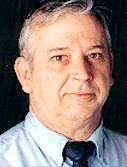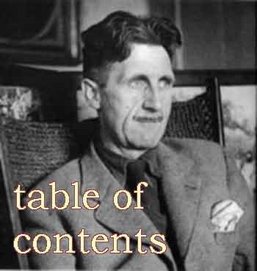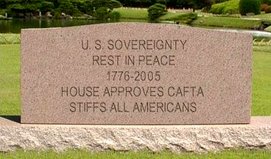
If the Founding Fathers were to come back, I doubt if they would recognize the United States today. Oh, they wouldn't be surprised by its size or its population or its technological progress. They expected that and encouraged it.
What would disturb them is how fond Americans have become of government. They would be disturbed at how we have allowed politicians and judges to turn the Constitution into an excuse instead of a restraint. They would be uneasy about the large standing army we have maintained since the end of World War II. And they would certainly disapprove of our foreign policy, which can only be described as imperialistic.
The Founding Fathers were suspicious of government and wary of it. They recognized that government is always the greatest threat to liberty. George Washington likened government to fire – "a dangerous servant and a fearful master." The whole purpose of the Constitution they devised was to keep the government divided and weak.
First, they expected the sovereign states to act as a brake against any attempt by the federal government to usurp their powers as defined by the Constitution. Abraham Lincoln nullified that concept with brute force. Under their original plan, U.S. senators were selected by the state legislatures and were clearly intended to act as ambassadors from the states. Later generations foolishly eliminated that safeguard by amending the Constitution so that senators are elected by the people.
Clearly, the Founding Fathers did not approve of the modern concept, imposed by federal courts, of one man, one vote. They designed the House to represent the people, but each state, regardless of size, was given two senators. When federal courts eliminated the states' ability to follow the example of the Constitution, they shifted political power from the rural areas to the big cities. It's been more or less downhill ever since.
The Founding Fathers rejected the parliamentary system, in which the executive and the legislative majority are one. They wanted a House and Senate that were elected independently of the president. They intended for Congress to act as a check against attempts by the executive branch to usurp power, and they intended for the president, wielding his veto, to act as a check on Congress.
The modern two-party system has nullified this safeguard. Both Democrats and Republicans act like slaves to the man in the White House if he shares their party label, thus nullifying the most important of the checks and balances the Founding Fathers built into the Constitution. By acting like lap dogs when their man wins the White House, both Democrats and Republicans have imposed a parliamentary system on us.
Americans, in defense of their own liberty, should make sure that whatever party holds the White House does NOT have a majority in Congress. It is to our advantage and was so intended by the Founding Fathers that the president and Congress be at odds on all but the most important issues.
To ensure an independent judiciary, they made those appointments for life, which has turned out to be a mistake, given how reluctant Congress is to impeach a federal judge. My Confederate ancestors recognized this problem, and in their constitution a federal judge could be impeached by the legislature of the state in which he sat. That would cure a lot of abuses committed by the federal judiciary.
A reading of the Constitution makes it clear that the federal government was designed to be an agent of the states and authorized to act only on behalf of all the states in a few, clearly specified areas. None of those includes education, welfare, medical care, foreign aid and domestic pork-barrel projects.
Future historians, when they come to write the obituary of the United States, will note that we started out with the best system ever devised by man and willingly dismantled it for a bowl of federal porridge.
June 3, 2006
Charley Reese [send him mail] has been a journalist for 49 years.
© 2006 by King Features Syndicate, Inc.
Charley Reese Archives







No comments:
Post a Comment